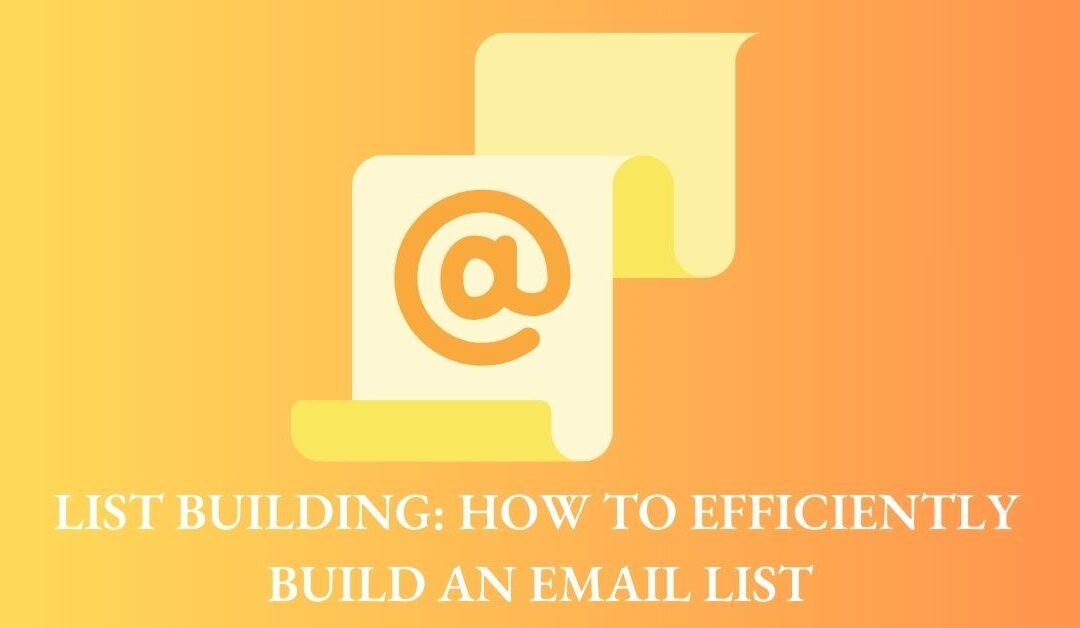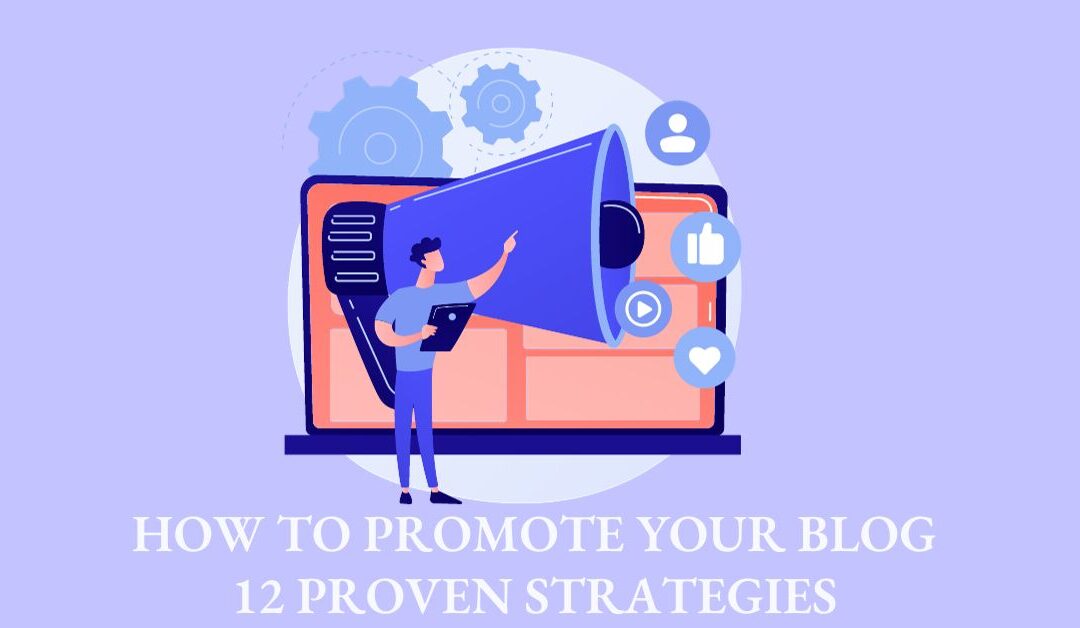Backlinks have a significant role in determining your rank in SERPs and continue to be one of the top factors that impact Google’s ranking. Links from other sites are signs of trust and confidence in your content and signify the site’s authority. There are several proven link building strategies that digital marketers practice to earn quality backlinks quickly. However, link building is an ongoing process that takes time.
In this post, I will discuss 15 powerful backlink building strategies that can help you get quality backlinks in minimal time. But, before discussing those strategies, let’s first see what are link building strategies and why they are important.
What are Link Building Strategies?
Link building strategies are techniques web owners, SEO specialists, and marketers use to acquire incoming links from other websites. There are two major types of backlinks when it comes to link building for SEO:
Dofollow: Dofollow links are the links that pass the link equity or link juice to your page. Dofollow links pass authority to your page, increasing search engine rankings. By default, all links are dofollow unless you include the rel=” nofollow” attribute in the HTML code. For example, a dofollow backlink looks like this in HTML code:
<a href=”https://linkingpage.com”>Linking Page</a>
Nofollow: Nofollow links do not pass authority or link juice to your page. They do no impact your search engine ranking but bring traffic to your page and help expand your link profile. It is important to note that all social media links are nofollow links. A typical nofollow link looks like this:
<a href=”https://linkingpage.com” rel=”nofollow”>Linking Page</a>
Why are Link Building Strategies Important?
Link building strategies help websites rank higher in SERPs. Google and other major search engines, including Bing and Yahoo, consider backlinks when determining a website’s rank in SERPs. The more authoritative backlinks a website gets, the higher it ranks in search results.
In other words, link building techniques play a vital role in search engine optimization. Ranking on Google’s first page requires building backlinks from high-authority relevant sites.
Link Building Strategies
Before I get into the details of link building techniques, please note that gaining backlinks requires contacting the website owner, also known as a webmaster. You can contact the owner either through the ‘Contact Us’ link or email. I always recommend reaching out through email when asking for a backlink.
You can usually find the email address through the site’s contact page or LinkedIn account. However, sometimes, you may not need help finding the site owner’s email address. Therefore, services and tools for finding the email addresses of site owners can be of great help, such as Hunter.io.
Once you have access to the email addresses of site owners, you are all set to build backlinks through the following strategies:
1. Link To Other Sites
An effective way to build backlinks is to link externally. If someone has linked to your post, will you also link to them? Yes, most likely, you will. However, always reach out to them, letting them know you enjoyed reading their content and sharing their link in your post. Please remember to keep your pitch short.
If you have a WordPress site, enabling trackbacks can do most of the job. As a result, an automatic notification is sent to the linked site every time you publish an external link in a post. If the other site approves your trackback, a link will be displayed along with the post’s excerpt in their comment section.
2. Write Guest Posts
Guest blogging or guest posting is writing posts for another blog or website. It is one of the most successful link building strategies. Guest blogging helps earn backlinks and establish your writing authority. You also target a wide range of audiences and connect with other bloggers, which enables your business to grow.
Guest blogging gets you targeted niche-specific backlinks. Several websites and blogs accept guest posts. Some sites allow including a link to your blog in your guest post, while others don’t. However, you can include a link to your website in your bio for sites that do not allow guest bloggers to have a link in their posts.
However, guest blogging is more like a tool for establishing your authority and building relationships with other influential bloggers and authors.
3. Comment on Highly Authoritative, Relevant Blog Posts
Commenting on relevant blog posts can help you build a relationship with the author and the audience. Although I do not recommend adding a link to your site in the comment, you can do it only if it makes sense. Commenting helps establish your authority as a writer and tempts the author to link to your site.
Keep commenting regularly and get yourself noticed. You may not get backlinks initially, but your consistent behavior will make your presence felt, and you will start gaining links.
Gaining backlinks requires your comment to add value to the post. For example, you can:
- Add valuable information that may interest the author and the audience.
- Express your positive views about the post.
- Join a conversation started in the comment section.
4. Replace Outdated Content
Replacing outdated content is another successful link building strategy. You will find many obsolete web pages during your research, allowing you to replace them with your content. To replace the outdated content, you must first find obsolete resources, such as web pages:
- That are no longer active.
- Having outdated information.
- That have moved to a new URL.
- Of sites that have changed names.
The best way to find outdated resources is to follow your industry-related news. For example, whenever a business faces a financial crisis or a merger, you will know about it through the news.
Once you have identified the outdated resources, find sites linking to those resources. You can easily find linking sites with the help of a backlink-checking tool such as SEMrush.
Finally, write outreach emails to the sites linked to outdated resources. Instead of writing individual emails, use a suitable tool for sending bulk emails. For example, those who are using SEMrush can use its link-building feature for outreach campaigns.
5. Build Broken Links
Next on the list of link building strategies is building broken links. Just like replacing outdated resources, you can replace broken links for link building. Broken links refer to links to web pages that no longer exist and return a 404 error.
To build broken links, you must contact the web admins of websites linking to the broken link. Humbly inform them about the broken link and provide an alternative link to your content. In most cases, they will replace the broken link with your link. In most cases, they will replace the broken link with your link.
The most popular SEO tools, like SEMrush, provide a feature for finding broken links to your competitors.
6. Create Content That is Better Than Already Published Content
Another powerful link building strategy is to create content that is better than already published content. This strategy best suits you if you are a skilled writer with command over your niche. Although it is a difficult task, it can earn you more backlinks than any other strategy. First, identify successful content in your niche. Then, create better content and promote your content to those who link to the original content.
However, create something that offers more value regarding data and information to qualify for replacement. Therefore, research and creating great content may require significant time and energy.
7. Backlink Gap Analysis
Backlink gap analysis refers to analyzing competitors’ backlinks and identifying links you can get. For example, if a site links to multiple competitors, you will likely get a backlink from that site.
Serpstat and SpyFu are two great SEO tools that are cheaper than SEMrush and allow users to discover information regarding common link donors of competitors.
Contentbird is another SEO tool offering a team member collaboration feature, perfect for businesses with multiple people responsible for backlink strategy.
8. Republish Your Content on Other Sites or Content Syndication
Content syndication is republishing your content on another website or blog. You can syndicate any digital content, such as blogs, articles, videos, and infographics. Content syndication is like guest posting, except your blog and the other site have the same content.
Do not ignore the following factors in mind when you do content syndication:
- Include a canonical tag. Canonical tag informs search engines about which URL contains the master copy of the content. A typical canonical tag looks like this:
<link rel=”canonical” href=”URL of the master page containing original content”>
With duplicate content, search engines show only one page in results, which they believe is original. Without a canonical tag, search engines may consider the page containing the syndicated content as the master copy. Also, ensure Google indexes your content before republishing it on another site.
9. Take Part in Different Discussion Forums
Taking part in different discussion forums is among the link building strategies that help you build links and enhance brand awareness simultaneously. There are many forums where you can contribute to discussions to promote your work and establish your authority. One such forum is Quora, which is free to join.
Once you have joined a discussion forum or platform, look for questions about your niche. There are two ways to use these discussion forums:
- Look for a question that is related to one of your existing posts.
- Write a post in response to a question.
In either case, the purpose is to share your post while answering. So, instead of writing long answers on forums, give a short answer with a link to your post.
Discussion forums are great for backlink building and growing your loyal customer base. You will also get new ideas for writing more content for your blog.
10. Write Testimonials
Writing a testimonial for other blogs, products, or services is another effective strategy to build quality backlinks. Whether small or big, every business loves to show off when someone praises its product or service. At first, it may seem like you are supporting your competitors, but you will help yourself. So, do not shy away from writing testimonials for others.
You can start by writing testimonials for products and services you already use. Make a list of products and services that you like. After you have compiled the list, it is time to contact the site owners, letting them know you love their product. Ask them if they would like a testimonial from you. If they want one, you will get featured on their site.
You can give both written and video testimonials. Almost every site will include a backlink to your site to show that the testimonial is coming from an authentic source.
11. Write Reviews
Writing reviews is among the link building techniques that also help build relationships. There must be tools, products, and services you use for the effective growth of your online business. How about writing reviews for those resources and gaining backlinks in return? It is a good deal, provided you remain honest while writing the review.
You can write reviews for almost every product, from email marketing tools such as AWeber and Getresponse to SEO tools such as SEMrush and SpyFu. After writing the review, you can contact the product or site owner, letting them know about your review. Also, gently ask them to share it on social media or link to it.
12. Get Featured in Roundups
Some blogs and sites publish daily, weekly, or monthly roundups of unique content. Getting featured in link roundups will get you a backlink and the spotlight. Therefore, finding blogs or sites that publish link roundups as a first step would be best.
After you have identified the blogs and sites that publish roundups, it is time to reach out to their owners, sharing your content with them and asking them to include it in their next roundup.
13. Use HARO (Help a Reporter Out) And Become a Source For Reporters
Next on the list of link building strategies is HARO. HARO (Help a Reporter Out) is a platform that connects journalists seeking expert knowledge with expert sources having that knowledge. To use HARO, you must first sign up as a source. I recommend using a free basic plan in the beginning.
After signing up, you will receive emails from different journalistic blogs and news sites. You will receive three emails daily if you sign up for a free plan. The emails will contain requests for advice, tips, etc. Respond to those emails with the best answer to get approved. You will earn a link from the requested source site if your reply gets approved.
Nothing can be better than getting a backlink from journalistic blogs or news websites, as they are highly authoritative and high-quality backlinks.
14. Be Active on Social Media Platforms
Although the links you get from social media are nofollow, search engines give some weightage to social media links. Additionally, social media platforms are ideal for enhancing brand awareness. The more people learn about your brand or business, the more likely they will refer you to others. In other words, social media links increase the chances of getting dofollow links.
15. Create Quality Content
Last on the list of link building techniques is creating high-quality content. High-quality content helps you get organic backlinks from relevant sites. In addition, high-quality content attracts links from high domain authority sites.
Remember, highly engaging content displaying expert knowledge gets shared and linked by other sites more often because:
- It provides credible information and gives value to the audience.
- It increases traffic.
More likes and shares lead to more opportunities to get links from relevant sites. In short, creating high-quality content is the most cost-effective and time-saving way to build links.
Conclusion
You cannot rank higher in SERPs without having a good backlink profile. Although countless techniques exist to build links, only a few deliver the desired results. Most importantly, using the right link building strategies is crucial to saving time and energy.






0 Comments